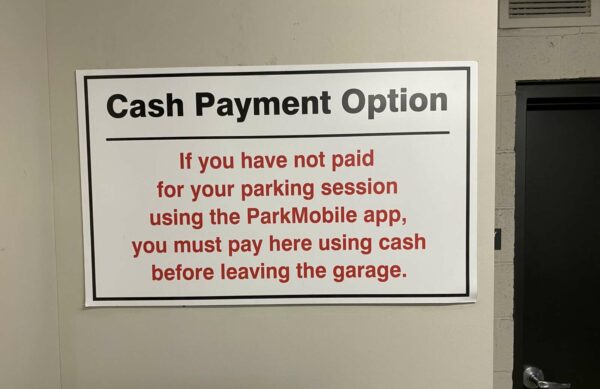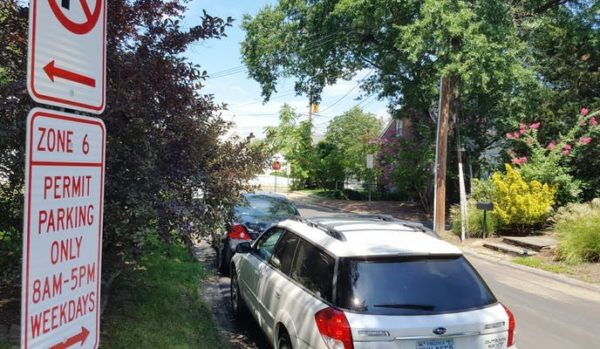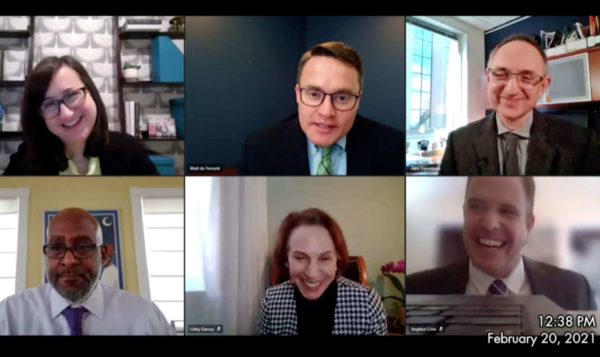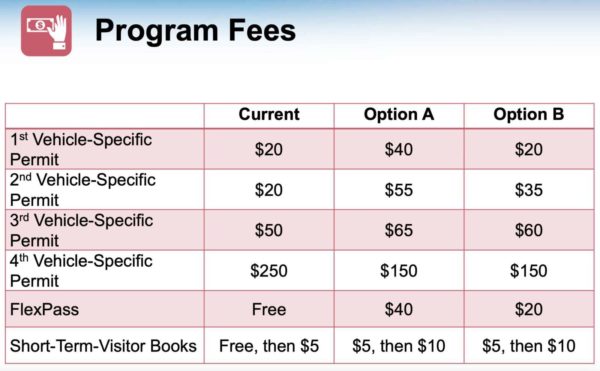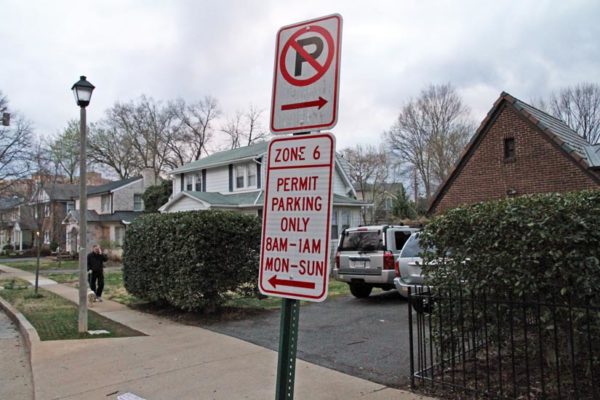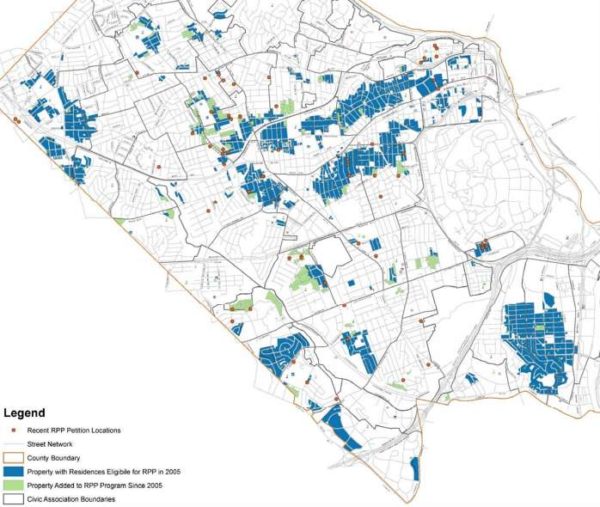
Arlington County is set to essentially shut down on America’s birthday.
County government offices, courts, community centers, and county libraries are all closed on Monday, July 4 in observance of the holiday. The Long Bridge Aquatics and Fitness Center will also be shuttered. Covid-19 testing sites and vaccine clinics are taking a break that day as well.
Arlington County schools are closed for employees on Independence Day, with summer school starting the next day on July 5.
America’s birthday also means free parking. Meters will not be enforced on the holiday, though permit parking is still in effect.
Trash, recycling, yard waste, and special pick-up collection, however, will be on its regular schedule.
Regular Monday curbside collection on July 4th. County holiday schedule: https://t.co/ILbML6UlE9. pic.twitter.com/fnCh1EuCdT
— Arlington Department of Environmental Services (@ArlingtonDES) June 30, 2022
The monthly free paper shredding, scrap metal, and inert material drop-off event at the Shirlington facility that would have been scheduled for this Saturday shifts back a week, to July 9.
For those looking to check out the fireworks, Metrorail’s holiday schedule may be the impetus to stay in Arlington this year. Earlier this week, Metro announced service will be significantly reduced this Independence Day, relative to past holidays.
“Due to the reduced number of railcars available for service, capacity on Metrorail will be less than previous Independence Days,” said Metro’s press release. “That means customers should be prepared for longer lines to enter stations near the Mall after the fireworks, up to 60 minutes, and for crowding to occur.”
Metrorail will be operating until midnight, with trains every 20 minutes on the Blue and Orange lines and every 15 minutes on the Yellow Line. Trains will arrive every 7 minutes at the downtown stations serviced by several lines. Expect lines of up to an hour to catch a train after the fireworks, Metro says.
Metrobus and Arlington Transit (ART) buses will both be operating on a Sunday schedule. For ART, that means only a few of the busiest routes will be running.
There will also be an abundance of road closures in Arlington related to the fireworks show downtown.
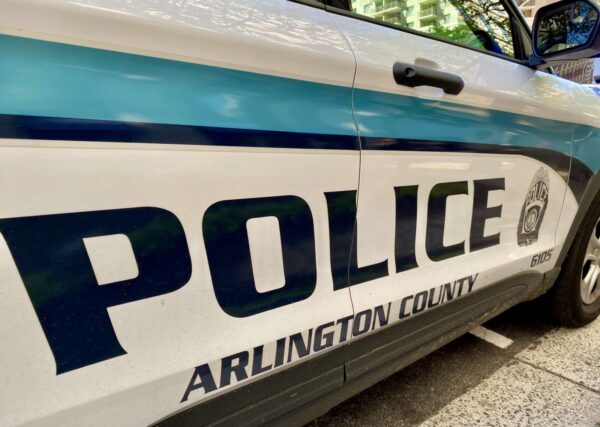
An Arlington man is facing charges after allegedly shoving and threatening a county parking aide.
The incident happened Thursday afternoon along S. Lowell Street in the Green Valley neighborhood.
“At approximately 3:52 p.m. on May 19, police were dispatched to a report of an assault,” said an Arlington County Police Department crime report. “Upon arrival, it was determined that the suspect’s vehicle was in the process of being towed when he confronted the Public Safety Aide (PSA). During the confrontation, the suspect allegedly threatened the PSA before physically pushing him. Responding officers took the suspect into custody without incident.”
The 20-year-old suspect was charged with Assault and Battery and released on an unsecured bond, police said.
Earlier Thursday, yet another series of auto crimes was reported, this time in the Ashton Heights neighborhood. Officers found nine vehicles with windows smashed along the 800 block of N. Lincoln Street, according to the crime report.
“At approximately 8:34 a.m. on May 19, police were dispatched to the report of a destruction of property,” said ACPD. “Upon arrival, it was determined that between 11:00 p.m. on May 18 and 6:00 a.m. on May 19, the unknown suspect(s) smashed the windows to nine vehicles and stolen items of value from two of the involved vehicles. There is no suspect(s) description. The investigation is ongoing.”
Dozens of vehicle thefts, break-ins and other such crimes have been reported across Arlington over the past few weeks.
Stay. Lost Dog Cafe is going to stay.
With help from the Arlington County Board, Lost Dog Cafe’s parking situation is now nearing a resolution which has prompted the restaurant to renew its lease on Columbia Pike.
Last June, ARLnow reported that confusing and high parking fees in a county-financed Columbia Pike garage, owned by Ballston-based developer AvalonBay, was potentially costing Lost Dog Cafe and fellow tenant Joule Wellness Pharmacy thousands of dollars a year in customer revenue.
Because of this, both businesses were planning on not renewing their leases on the ground floor of the Avalon Columbia Pike apartment building.
But, in January, the County Board revised an unusual 2006 agreement that essentially allows AvalonBay to stop paying back the county for contributing nearly $3 million to the construction of the privately-owned garage.
This has led the developer to agree to lower parking fees inside of the parking garage at the corner of Columbia Pike and S. Walter Reed Drive.
Starting as soon as the end of this month, the developer is changing the fee structure at the parking garage to allow customers to park for free for one hour, AvalonBay spokesperson Kurt Conway confirmed. It’s $2 per hour after that.
Additionally, more employee parking spots will be available to the businesses.
This change has resulted in Lost Dog Cafe signing a six-year lease extension to stay on the Pike. Added to the two years left on its current lease, the neighborhood eatery is planning on staying at its current location until at least 2030.
“We believe that the change in the parking situation will allow us to run our business more successfully,” Lost Dog franchise owner James Barnes tells ARLnow.
Joule Wellness Pharmacy director of marketing Alex Tekie also says that this change will significantly help their business. However, he notes that the pharmacy has actually not yet been informed by AvalonBay of this change.
Most of the parking woes began back in March 2020, when the pandemic hit and, incidentally, higher fees, tickets, and threats of towing began after years of lax enforcement, according to tenants.
At a time when many businesses were struggling and shifting towards more take-out, charging for even just a few minutes of parking made it even more difficult for the local businesses.
“This parking issue has made it so untenable,” Barnes said last June. “We link this to our sales and our sales are not good. There’s a correlation with this parking lot.”
Joule Wellness Pharmacy ownership also told ARLnow at the time they were shelling out nearly $800 for employee parking. This prompted both businesses to threaten to leave the development and Columbia Pike.
This was all coming to a head as the Pike, in general, continues to grapple with redevelopment and questions of how to keep small, local businesses on Arlington’s “main street.”
But, at least in this instance, a change to a 16-year-old agreement appears to have solved at least a couple of tenant renewal issues, for now.
The City of Falls Church is no longer forcing La Tingeria to shut down its new restaurant by January, a city spokesperson tells ARLnow.
Last month, the popular Arlington food truck La Tingeria set up shop at 626 S. Washington Street in Falls Church. But only a few weeks later, the city sent a notice to owner David Peña saying it was pulling the restaurant’s certificate of occupancy due to neighbor complaints about customers parking on neighborhood streets.
The shop was going to have to close by Jan. 2, 2022, barring an appeal.
But now, it appears the city is backtracking and will not be revoking La Tingeria’s certificate of occupancy, at least not yet.
“The City of Falls Church and the business owner are working together to create solutions to the parking issue. The owner has already made improvements by marking the onsite parking,” Falls Church Director of Communications Susan Finarelli says. “The City is working with the neighbors and looking at the right-of-way to help with traffic and parking on the dead-end residential street. As this positive momentum continues, we anticipate not revoking the Certificate of Occupancy in January.”
This comes after ARLnow reported on the story and customers reached out to the city to express their support for the restaurant.
By revoking La Tingera’s certificate of occupancy, the City of Falls Church may have been in violation of the restaurant’s constitutional rights, according to the Ballston-based Institute of Justice, a national nonprofit that helps businesses fight against what it views as government overreach.
“Under the state and federal constitution, people have a right to run their businesses without being subject to unreasonable and arbitrary laws,” senior attorney Erica Smith Ewing told ARLnow. “I think there’s a very strong argument that forcing restaurant owners to be responsible for enforcing the city’s parking laws is completely unreasonable.”
This could have been handled by the city issuing parking tickets, notes Ewing, not the disproportionate response of threatening to shut down a business.
“Especially with the economy as it is, it’s shocking that the city is punishing a restaurant for being too successful,” said Ewing. Locally, the Institute for Justice previously took up legal cases in Arlington after county crackdowns on food trucks and a mural next to a dog park.
In the notice sent to Peña, the city cited that the restaurant’s violation of Sections 48-58 and 48-1004 of the City Code.
When ARLnow reached out to Falls Church about La Tingeria’s violations earlier this week, a city spokesperson was only able to provide one line from section 48-939 that reads “No portion of any required off-street parking or loading space shall occupy or use any public street, right-of-way, alley or property, except by expressed permission of the city council.”
Ewing wasn’t surprised by this lack of clarity.
“This isn’t the first time city officials have said that someone is violating a law and haven’t been able to show them how they’re violating it or why,” she said. “[Peña] shouldn’t have to dig through outdated codes to figure out what he did wrong. The city should be helping him understand and fix the problem.”
It appears that the city is now doing just that with La Tingeria.
Peña tells ARLnow that he’s very happy with this development, but remains fearful there could be more issues going forward.
Despite a challenging first few weeks, he still believes that the Falls Church will be a great home for La Tingeria’s popular queso birria tacos and chicken tinga.
“I absolutely [want] to stay here and see how much we can grow,” Peña says. “This is just the beginning.”
Photo (2) via Google Maps
The past month was supposed to be validation for David Peña and his taco eatery La Tingeria, a popular Arlington food truck.
La Tingeria recently opened at 626 S. Washington Street in Falls Church, ditching the usually-busy food truck — at least temporarily — for a brick and mortar restaurant.
It was going to be a challenge, but Peña was looking forward to having a shop to call his own after nearly a decade of serving tacos out of a truck in various Arlington locales.
However, after only being open for three weekends, Peña last week received a notice from the City of Falls Church and a visit from city officials, telling him that his certificate of occupancy was set to be revoked in 30 days due to complaints from neighbors about parking.
“My office continue to receive daily complaints from neighbors and now [the] City Council regarding City Council regarding your customers parking on neighborhood streets,” said a notice which Peña posted on Instagram. “This is a violation of your certificate of occupancy, and Sections 48-58 and 48-1004 of the City Code.”
As a result, the taco shop is being forced to close by Jan. 2, 2022, barring an appeal.
“I’m not doing anything illegal, but I’m being punished like I am,” Peña tells ARLnow. “How did it get that far so quick when we haven’t even had our grand opening yet?”
Early last month, Peña told ARLnow that he tried to open his restaurant in Arlington, but rent was too expensive. Hence, the move to Falls Church.
He thought La Tingeria, known for queso birria tacos and chicken tinga, had found a perfect home, but now he’s not so sure. Peña admits that when he leased the space on Washington Blvd, he knew the parking lot was small and that there was potential it could fill up quickly.
“We are a popular place, so it was in the back of my mind,” he says.
But he didn’t imagine the situation would rise to this level so quickly.
In recent days, Peña has tried to alleviate the problem by posting more signs on his shop and information on his Instagram telling customers where they can and can not park. The forbidden areas include W. Westmoreland Road and Summerfield Road across the street.
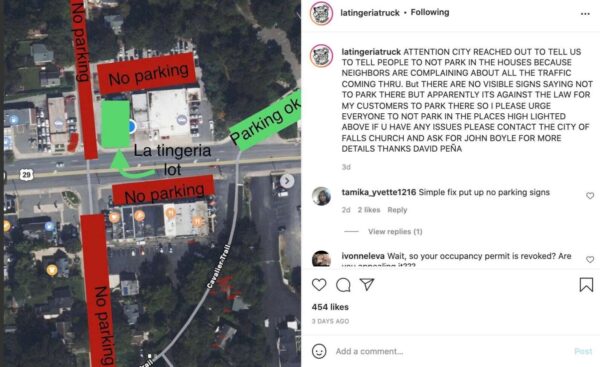
Since there are no official signs in the neighborhoods about no parking, Peña said there’s only so much he can say or do.
“I’m asking [customers] to be courteous to our new neighbors… but unless there are signs up saying that you can’t park here, people are going to park there,” Peña says. “There’s nothing I can do about that.”
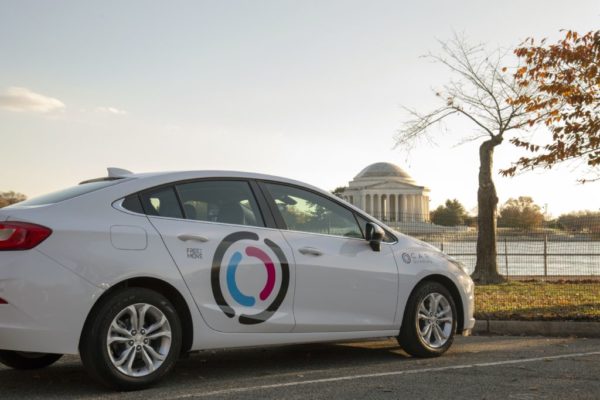
One minute after midnight this morning, car-sharing company Free2Move ended its services in Arlington over issues with parking in the county.
It marks a short-lived run in Arlington for the European company, which launched its services in July 2019 after expanding into D.C. in October 2018.
Free2Move, which offers free residential and metered parking to members, says its attempts to renew this parking arrangement were unsuccessful. As a result, users can no longer start or end their trip in Arlington, although they can drive through the county.
“Over the past few months we have been working with the City of Arlington to renew our permits to operate in Arlington,” the company told members in an email, mistaking the county for a city. “Unfortunately, we have not been able to renew the permit and we were notified today by the City of Arlington to cease our operations in the area.”
The service said it’s not pleased with the result of the negotiations.
“We understand for many of you this will come as difficult news and it’s not one Free2Move is happy about,” the email said. “We have enjoyed being part of the community and supporting our members with their transportation needs.”
The county department that’s responsible for car-sharing programs has a different account.
“Carsharing provider Free2Move notified the County on Sept. 17 that the company would be unable to commit to obtaining the required insurance to operate within Arlington County this year,” a Department of Environmental Services spokesman said. “Although Transportation staff worked with Free2Move representatives during the last several months to help them meet the requirements for their permit, the company instead decided to no longer provide services in Arlington.”
A number of users reached out to ARLnow to share the word of the service ending. Darsh Suresh, a three-year resident of the Rosslyn area, said he’s saddened by the news, as he relied on these cars for short trips he can’t make by transit.
“I usually take Metro or the Bus to commute or get around, but having Free2Move has made it easier for trips to other areas, such as driving to visit family in Loudoun County,” he said. “It’s one of the primary reasons I haven’t gotten my own car. I’m very disappointed at this surprise announcement, and hope that the county government and Free2Move can come to an agreement to keep service operational in Arlington.”
The news got some traction on Twitter from transit advocates, including Aaron Landry, who oversaw the brief operations of German car-share company Car2Go in Arlington.
I worked w/Arlington County on the free-floating carshare permits and am proud car2go was the first company to use them. Arlington County became one of the best partners in North America and did carshare permitting right. I strongly doubt Free2Move is telling the full story here. https://t.co/1z5WHl8kMs
— Aaron Landry (@s4xton) September 29, 2021
The full email from Free2Move is below.
To our community,
As you are aware, as part of our Car Sharing service Free2Move offers all members both residential parking and metered parking at no cost to you. Over the past few months we have been working with the City of Arlington to renew our permits to operate in Arlington. Unfortunately, we have not been able to renew the permit and we were notified today by the City of Arlington to cease our operations in the area.
What does this mean for our members? Starting at 12:01am on September 30th you will no longer see vehicles listed on our app in Arlington for rent. Trips can continue to be started in DC and drive through Arlington but you will no longer be able to end your trip in Arlington.
Additionally it will be the members responsibility to adhere to all parking regulations and costs in Arlington. We understand for many of you this will come as difficult news and it’s not one Free2Move is happy about. We have enjoyed being part of the community and supporting our members with their transportation needs.
If you have any questions please reach out to our customer support team.
Thank you,
Free2Move
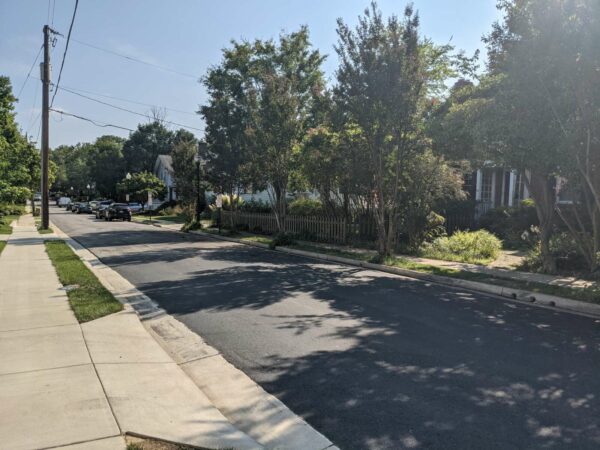
Abigail Brooks and her husband moved into their new home on N. Ivy Street, which was built in 2020, in April of this year.
Since then, she says they’ve been stuck in a Residential Permit Parking program quagmire. While they live on a street that is in an RPP zone, they have not been able to get their address approved for a permits, meaning the couple could get ticketed for parking on their own street.
“Our house was built along with two others and it is only ours that is not showing correctly for parking,” she said. “I have tried different forms, emails, calling, etc. and still cannot get this resolved.”
Brooks said she has also found some people with the same issues through the gym to which she and her husband belong.
“A couple of us did new construction at the same time so we’ve shared lessons learned, timelines, etc.,” she said.
In a months-long email back-and-forth with the parking team, provided to ARLnow, county staff repeatedly said the Brooks’ address is not eligible for the program. Even an attempt to get a county real estate appraiser to confirm her home’s assessment information and thus parking permit eligibility was unsuccessful.
But Department of Environmental Services spokesman Eric Balliet found that Brooks is correct: her home should be eligible.
“The resident is likely facing this issue because of a technical problem we’re experiencing that is preventing us from adding newly created addresses to our database,” he said. “This problem only affects newly created addresses… not existing addresses.”
The problem — affecting four households that the county knows of — was first identified in June 2021, but staff had a workaround in the database. That workaround stopped functioning in mid-July, Balliet said.
“We anticipate having the problem fixed by next week,” he said.
Until this issue is resolved, Balliet said residents can fill out a paper permit application and pay the permit fees in-person at county government headquarters. Staff will manually add the resident’s parking permit order to the system.
Brooks said it is unfortunate that she couldn’t get the same answer from the county.
“If they had responded and explained the issue, I would have understood and stopped bothering them for it to be fixed,” she said.
She praised other county functions for finding ways around the issue.
“Utilities, trash, recycling, etc. found workarounds for the issue we had with our address and personally ensured we got what we needed,” she said. “The real estate assessment team also were trying to be so helpful during the parking situation and we really appreciated how much they followed up with us to see if there is anything they could do to help resolve.”
Earlier this year, the county approved a number of changes to the Residential Permit Parking program. After considering paid, two-hour parking in RPP zones, the idea — which elicited public outcry — was nixed, but the program was expanded to make some multi-family properties, like apartment buildings, eligible.
Although the changes are in place, county staffers are still focused on renewing resident and landlord permits and passes for the 2021-2022 program year. They are still not processing petitions to establish new permit parking zones; the creation of new RPP zones has been frozen since the summer of 2017.
“We are finalizing updated petition procedures that incorporate changes the County Board adopted in February,” Balliet said. “We look forward to releasing those to the public in the coming weeks.”
(Updated at 11:10 a.m.) A pair of Columbia Pike businesses say they’re planning to leave when their leases are up due to parking challenges at a county-financed garage.
Lost Dog Cafe and Joule Wellness Pharmacy both tell ARLnow that relatively high and confusing parking fees in the garage are costing them thousands of dollars a year in customer business. The owners of both say they will not be renewing their leases when they expire come 2023 and 2024, respectively.
“This parking issue has made it so untenable,” says Lost Dog Cafe franchise owner Jim Barnes. “We link this to our sales and our sales are not good. There’s a correlation with this parking lot.”
The parking garage, located at the corner of Columbia Pike and S. Walter Reed Drive, is owned by Ballston-based apartment developer AvalonBay. However, it was built based as part of an unusual 2006 agreement with Arlington County.
The county contributed $2.96 million to its construction with the promise of receiving 45% of parking revenue as a form of payback every month going forward, according to the “public parking development agreement” obtained by ARLnow.
It is one of only two parking garages in the county that has an agreement of this nature, county officials confirm, with the other also along Columbia Pike, at Penrose Square.
The agreement does not specify a duration for which the county will continue to receive the parking revenue and county officials declined to provide an “interpretation” of whether that could mean into perpetuity.
They also didn’t specify how much revenue the garage generated for the county in 2020.
The parking garage is owned by AvalonBay and was acquired by the company with its $102 million purchase of the since-renamed Avalon Columbia Pike apartment building — formerly the Halstead Arlington — in 2016.
While this agreement had been in place for a decade and a half, initially signed by a different developer, a majority of the issues for the businesses started in March 2020, just days before the pandemic began to hit Arlington.
That’s when, according to Lost Dog and Joule Wellness, the parking machines were turned on and enforced for the first time in years.
Lost Dog Cafe, a franchisee of the original in Westover, moved into 2920 Columbia Pike in May 2009. At the time, Barnes said that parking was free after 5 p.m. and on weekends, which he says was an adequate compromise. A large portion of their customer-base came when parking was free anyway, with the garage able to earn revenue at other times, he says.
When AvalonBay purchased the building, notes Barnes, those restrictions went away and the parking machines were turned off. Enforcement also stopped.
Then four years later, with little notice according to the businesses, the machines were turned back on, enforcement restarted, and parking fees were being charged 24/7. The machines require drivers to pay for parking in advance, and anyone who fails to do so — or who overstays the amount of time they paid for — gets ticketed or towed.
A sign outside the garage advertises a parking rate of $1.75 per hour, which can be paid via a cash-only machine inside the garage. Barnes claims the machine “has never worked” and “steals people’s money.”
Drivers can also use the ParkMobile app, but poor cell phone reception in the garage makes that difficult, and the app charges $2.25 for the first hour.
“Customers cannot use their phones to access it infuriating them and they simply choose to no longer come to our business as a result,” Barnes said.
Paid street parking is available nearby, but is limited. Parking on surrounding neighborhood streets, meanwhile, often requires a residential decal, and nearby parking lots are restricted to other businesses and their customers.
AvalonBay, in an email to ARLnow, disputes Barnes’ version of events, writing that parking was being collected prior to March 2020.
“Equipment had been in place and parking revenue was collected prior to March 2020,” writes a company representative. “In March 2020, an updated parking system was installed with the County’s approval.”
Barnes, however, says that he received “no notice whatsoever” about the change or any updates.
The management of Joule Wellness Pharmacy, which opened its Pike location in early 2014, said they did receive notice, but it was only two to three weeks prior to the change. What’s more, they said there’s no mention of paid parking in their lease.
“There was not no mention of that in our lease,” says manager Alex Tekie. “And in fact, we’re told parking is free for us and our employees and for customers coming on the retail side.”
Tekie and pharmacy owner Winnie Tewelde tell ARLnow they now shell out nearly $800 a month in parking, mostly so employees can park in the lot.
They’ve talked a lawyer about the situation, but grew weary of paying even more money to fight the parking changes against a large, publicly-traded developer.
“We got exhausted. Drained,” says Tekie. “It’s David vs. Goliath.”
Paid, two-hour parking will not be included in Arlington’s updated Residential Permit Parking program.
The County Board unanimously approved significant changes to the program during its meeting on Saturday.
The new program expands RPP program eligibility to multi-family buildings — excluding those approved via site plan — and grants permits to households based on how much off-street parking they have. Residents will be charged for some previously free permits, which according to the county, will end support for the program from general tax funding.
The Board ended up nixing a county staff recommendation to allow those from outside a neighborhood to pay for limited-time parking in zoned areas.
“Removing the two-hour [paid parking] is the big change that we have done,” Board Chair Matt de Ferranti said. “I was reading 196 pages of letters. We listened, and I think that is a big important step. Folks should hear that that is the biggest change.”
A county report and public letters indicate many residents pushed back on this specific proposal, which also divided members of the Planning Commission. County Board members cited enforcement challenges, given that vehicles without permits may actually be parked legally.
“Enforcement is too difficult right now,” Board member Libby Garvey said. Visitors will still be able to park in zoned parking if given a pass from an eligible resident.
While two-hour visitor parking was removed, Board members drew attention to the expansion of eligibility to multi-family buildings.
“One of the major reasons to reevaluate and reenact this program in Arlington [is] because it discriminates on the basis of housing types,” Board member Katie Cristol said. “I do feel confident that these amendments are going to make this program [fairer] and more consistent with our values in Arlington.”
She said the changes will leave the county better off than when the County Board repealed a RPP zone to put an end to a years-long dispute between Forest Glen and Arlington Mill residents, which pitted apartment dwellers over single-family home owners in an area with limited street parking.
The vote comes after a three year review of the program, during which new RPP applications were suspended. The program was originally established in 1972 to regulate parking in residential neighborhoods near Metro stations and commercial centers. Although the U.S. Supreme Court upheld the program in 1977, the program has been criticized recently for excluding people who live in apartments and condos.
About 10% of Arlington households are in current RPP zones, according to the county.
Public forums set for last spring were canceled due to the pandemic. Rather than reschedule them virtually, county officials concluded the review, citing equity concerns. A new period of public engagement began as the county geared up to propose the changes to the County Board in January 2021.
In December, the County Board deferred a public hearing until February to allow residents more time to look at the proposal.
Under the newly adopted program, all housing types can petition. However, those who live in residential buildings approved via site plan — as well as certain other types of mixed-use developments, plus Form Based Code developments along Columbia Pike — will be ineligible to apply for permits or petition for the program.
The county will require 80% of neighbors on a block to support a RPP petition, up from 60%. The county no longer needs to find that at least one-quarter of on-street parking is occupied by people from outside the area. Instead, it would need to find that more than 85% of spots are occupied.
“It’s really hard to tell what is an out-of-area vehicle,” county transportation official Stephen Crim said. “This out-of-area test is what causes many petitions to fail.”
Households with off-street parking are eligible for two annual permits (down from four), and households without it can get four permits.
For one permit, households can stick with the annual permit or opt for a FlexPass — a dashboard placard that residents and their visitors can use. All households can get up to five short-term visitor passbooks, which provide up to 300 days of parking each year.
The county will be charging for the FlexPass and the first book of short-term visitor passes. The first vehicle-specific permit or FlexPass is $40. The second, third and fourth vehicle-specific permits will cost $55, $65, and $150 respectively.
Low-income households that qualify for state and federal assistance programs will receive a 50% discount on passes.
Photos via Arlington County
Proposed changes to Arlington’s Residential Permit Parking program, including a pay-to-park option for short-term visitors, will go before the County Board next week — with a caveat.
On Monday members of the Planning Commission hammered out the kinds of changes to the program that they want the County Board to consider. The matter is set to be taken up during the Board’s meeting on Saturday, Feb. 20.
The commission recommended a case-by-case approach to paid, short-term parking in neighborhoods — currently not an option in places where parking is restricted to residents and their guests only during certain hours — as members were divided on whether to include it at all. Some support it across all neighborhoods with RPP programs and others support the possibility of neighborhoods requesting it. A few oppose it full-stop.
“I can’t do this to my neighbors,” said Commissioner Denyse “Nia” Bagley, who opposes pay-to-park entirely.
Vice-Chair Daniel Weir said the two-hour parking meets “a whole host of needs” and unanticipated circumstances that “all fall under managing parking,” from when people go to nearby restaurants or visit friends. Short-term visitors would be able to legally park without a pass or permit and payments would be processed through the ParkMobile app or through the EasyPark device.
The RPP program was originally created as a response to commuters parking in residential neighborhoods near Arlington’s Metro stations and commercial centers. It survived a legal challenge that reached the U.S. Supreme Court in 1977, and later expanded to numerous neighborhoods around the county. Neighborhoods must petition for RPP zones, but in many cases those who live in apartments and condos are excluded from receiving permits, raising equity concerns.
The commission also recommended allotting on-street parking permits to household units based on whether they have off-street parking, such as driveways or garages. Households with off-street options can get up to two permits, one of which could be swapped for a FlexPass, a dashboard placard that can be used by residents or their visitors.
Residents without off-street parking are eligible for up to four on-street permits, one of which could be swapped for a FlexPass.
According to a county staff report presented to the commission, the cap is higher than what was previously proposed, “in response to concerns that unrelated adults (who may have more vehicles than a family household) sharing a home without off-street parking in an RPP zone could face an unnecessary hardship.” Still, it’s lower for those with off-street parking than the current program.
“The current program allows for up to four (4) permits, one (1) FlexPass and three (3) vehicle specific permit decals,” a previous staff report said. “Many households already in the RPP program would not be able to obtain as many permits as they do today Lowering the cap encourages households with multiple vehicles to use their off-street parking, leaving space on the street for others.”
The commission did not tweak the expansion of parking options and permits to employees of K-12 schools and group homes. In response to concerns about enforcing paid parking, commissioners unanimously voted to include language stipulating that parking enforcement should be on par with metered parking elsewhere in the county.
These potential changes come three years after a moratorium was placed on new parking restrictions so a review of the program could be conducted. The review concluded last fall, kicking off a new period of public engagement as the changes wound through county processes.
The changes went before the County Board for the first time in December, when Board members decided to delay a public hearing to give the community more time to digest the changes.
At the time, the County Board approved an amendment allowing residents to buy a third or fourth parking pass at a higher cost, after hearing from families who suddenly had adult children come home due to the pandemic, in addition to homeowners who said the program would force them to widen their driveways.
(Updated 02/08/21) The Arlington County Board has scheduled a public hearing on proposed changes to the Residential Parking Program for its regular meeting on Feb. 20.
But Board members are open to pushing off the hearing further to engage more people and give residents more time to digest the changes.
Board member Christian Dorsey said the Board is merely advertising a public hearing and the proposed changes to the program are not drastic.
“This is an evolutionary update, not a revolutionary one,” he said. “While it’s a complicated program, the degree of change is not as difficult.”
A delayed public hearing may mean implementation is deferred to the 2022-23 fiscal year, especially if the County staff is expected to do more public engagement, said Stephen Crim, the RPP review program manager.
“Some people will be unhappy no matter how we do this program,” Board Chair Libby Garvey said. “We are really trying to balance what is fair and what is right and provide flexibility.”
The proposed changes come three years after a moratorium was placed on new parking restrictions so a review of the program could be conducted. Among the changes, County staff are recommending adding a pay-to-park option in restricted residential zones for short-term visitors, while expanding who can petition for Residential Permit Parking restrictions.
Residential areas with RPP restrictions would have paid, two-hour parking so that short-term visitors can legally park without a pass or permit. Payments will be processed through the ParkMobile app or through the EasyPark device, instead of pay stations.
Staff also recommend granting more parking options and permits to employees of K-12 schools and group homes, and reducing the number of permits that households can receive based on whether they have off-street parking such as driveways or garages.
During the meeting, the County Board approved an amendment that would allow residents to buy a third, or even a fourth, parking pass at a higher cost.
The added flexibility came after the board heard from families who have suddenly had adult children come home due to the pandemic, along with renters, homeowners who rent out rooms and homeowners who said the program would force them to enlarge their driveways.
Another concern expressed by some: whether the county can effectively enforce the modified parking restrictions, with hourly parkers added to the mix.
With the public hearing pushed from January to February, the Board members asked residents to think about the program over the next two months.
“This is a very complex program,” Garvey said. “For anybody who is just now looking at it, they need more time to digest even what we’re doing right now.”
So far, the public engagement process has mostly drawn out homeowners who currently benefit from the parking program, but not the apartment- and condo-dwellers who are generally excluded from it, a few Board members pointed out.
“Aurora Highlands has been well-represented in the public comments,” Board member Matt de Ferranti said. “The people who might benefit from this in terms of apartment buildings aren’t here.”


